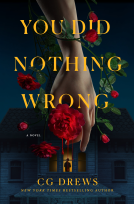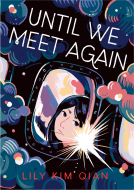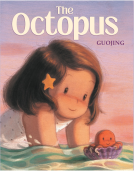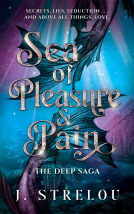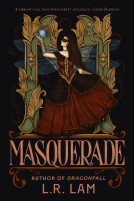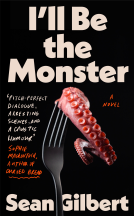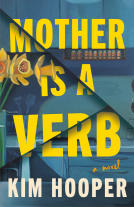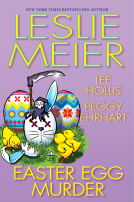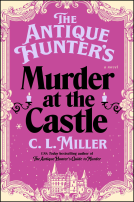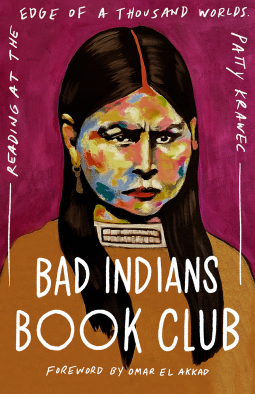
Bad Indians Book Club
Reading at the Edge of a Thousand Worlds
by Patty Krawec
This title was previously available on NetGalley and is now archived.
Send NetGalley books directly to your Kindle or Kindle app
1
To read on a Kindle or Kindle app, please add kindle@netgalley.com as an approved email address to receive files in your Amazon account. Click here for step-by-step instructions.
2
Also find your Kindle email address within your Amazon account, and enter it here.
Pub Date Sep 16 2025 | Archive Date Aug 11 2025
Talking about this book? Use #BadIndiansBookClub #NetGalley. More hashtag tips!
Description
“A fascinating advanced seminar about how to think, read, think about reading, and think about Indigenous lives.” —Booklist, starred review
Join the Bad Indians Book Club and read radically.
In this powerful reframing of the stories that make us, Anishinaabe writer Patty Krawec leads us into the borderlands of history, science, memoir, and fiction to ask: What worlds do books written by marginalized people describe and invite us to inhabit?
When a friend asked what books could help them understand Indigenous lives, Patty Krawec, author of Becoming Kin, gave them a list. This list became a book club and then a podcast about a year of Indigenous reading, and then this book. The writers in Bad Indians Book Club refuse to let dominant stories displace their own and resist the way wemitigoozhiwag--European settlers--craft the prevailing narrative and decide who they are.
In Bad Indians Book Club, we examine works about history, science, and gender as well as fiction, all written from the perspective of "Bad Indians"--marginalized writers whose refusal to comply with dominant narratives opens up new worlds. Interlacing chapters with short stories about Deer Woman, who is on her own journey to decide who she is, Krawec leads us into a place of wisdom and medicine where the stories of marginalized writers help us imagine other ways of seeing the world. As Krawec did for her friend, she recommends a list of books to fill in the gaps on our own bookshelves and in our understanding.
Becoming Kin, which novelist Omar El Akkad called a "searing spear of light," led readers to talk back to the histories they had received. Now, in Bad Indians Book Club comes a potent challenge to all the stories settler colonialism tells--stories that erase and appropriate, deny and deflect. Following Deer Woman, who is shaped by the profuse artistry of Krawec, we enter the multiple worlds Indigenous and other subaltern stories create. Together we venture to the edges of worlds waiting to be born.
Advance Praise
“A fascinating advanced seminar about how to think, read, think about reading, and think about Indigenous lives.”
—Booklist, starred review
“Bad Indians Book Club is a compendium of worlds. From a lifetime of reading, there emerges a marriage of tapestry and map, a vision of the literary canon not as some secret handshake of the correctly educated but as a living, growing organism. . . . There’s a dangerousness to a book like this. It’s not enough to define the Good Indian, the Grateful Immigrant, the Untroublesome Minority. Nor is it enough to simply reject these designations. One must interrogate how they came to hold so much power, how they offer the willing participant so many crumbs of reward from colonialism’s table.”
—Omar El Akkad, award-winning journalist and author of One Day, Everyone Will Have Always Been Against This; American War; and What Strange Paradise
“Bad Indians Book Club is full of good medicine—challenging us to ask questions and bringing us home to ourselves. As Patty Krawec guides us into the deep wisdom wells of many people who journey in kinship, we consider how to hold the curiosity of care and stories, and what it means to imagine and create a future that integrates all our stories into a web of healing. Please buy this book, and celebrate the power of story in a weary yet flourishing world.”
—Kaitlin B. Curtice, award-winning author of Native and Living Resistance
“With Bad Indians Book Club, Patty Krawec gifts us a compelling investigation into the power of not just reading books but also doing so in community. Krawec makes the case for building your circle through reading, as a way of being in better relations with all our kin, including the land. Thinking deeply alongside other books, Bad Indians Book Club is a needed guide at a moment when books are under attack. Books are not just written culture; they are also oral culture, and Krawec illuminates this beautifully.”
—Dr. Chanda Prescod-Weinstein, theoretical physicist and author of The Disordered Cosmos
“This genre-crossing, shape-shifting, imagination-expanding book is for all who love to, and also need to, read. We tell stories to live, and this enlivening book reflects on all kinds of stories, each page suffused with Patty Krawec’s unmistakable voice and generous, timeless wisdom.”
—Astra Taylor, documentary filmmaker and author of several books, including Remake the World and The Age of Insecurity
“In Bad Indians Book Club, Patty Krawec provides critical space for the ne’er-do-wells, disrupters, red sheep, box-busters, tricksters, and all of us rowdy relatives defying expectations. Indigenous people have always been proverbial thorns in the sides of colonizers, and this piercing book does an incredible job of letting the air out of today’s imperialist narratives.”
—Taté Walker, award-winning Two Spirit Lakota storyteller and community-builder
Marketing Plan
National and online publicity campaign targeting literary media
Social media campaign targeting those interested in Indigenous stories and literature
Trade advertising
Seasonal promotion during Native American Heritage Month
Email outreach to past purchasers of Krawec's first book, Becoming Kin
Author platform preorder campaign
Available Editions
| EDITION | Other Format |
| ISBN | 9781506499123 |
| PRICE | $27.99 (USD) |
| PAGES | 231 |
Links
Available on NetGalley
Average rating from 66 members
Featured Reviews
 Reviewer 1334686
Reviewer 1334686
“Bad Indians Book Club: Reading at the Edge of a Thousand Worlds” by Patty Krawec and Omar El Akkad encourages readers to reflect on who is telling the stories we consume, for whom they are intended, and for what purpose.
The book is divided into nine sections that focus on so-called "Bad Indians"—those who resist conforming to hegemony/ kyriarchy/systems of oppression/white supremacy. The chapters cover a range of themes, including creating space for storytelling, exploring nature and science writing, engaging with history, challenging patriarchy, and delving into memoirs, fiction, speculative fiction, and horror.
The authors emphasize the importance of connection, writing, and reading, especially in an era of book bans. They argue that to bring about change, we must read intentionally and radically. The book draws on the voices of other Indigenous and marginalized groups, including those of Black, Jewish, and Palestinian backgrounds, to explore complexity and help decolonize our language, storytelling conventions, and perspectives.
The authors showcase the power of language, illustrating how the stories of marginalized writers can help us envision new ways of understanding the world. Readers are invited to reflect on how these narratives can foster community and connection, as well as provide a deeper understanding of contexts often overlooked in mainstream historical texts, media, and national narratives/lore.
I highly recommend this book. Although I don’t often read nonfiction, I was captivated by the cover and description. Once I began reading, I was hooked. I plan to pre-order a hard copy so that I can reflect on the text, highlight important sections, take notes, and dog-ear my favorite passages.
While the authors address both past and present struggles, the reading experience was engaging, uplifting, and motivating. Anyone who enjoys the works of authors like Ta-Nehisi Coates, Tommy Orange, Aaron John Curtis, Stephen Graham Jones, Ibram X. Kendi, Mikki Kendall, Angela Davis, and Morgan Talty may find this thought-provoking book compelling. Thank you to Broadleaf Books and NetGalley for the amazing ARC in exchange for an honest review.
 Geoffrey S, Librarian
Geoffrey S, Librarian
As someone who often describes the various indigenous-authored fiction and nonfiction works that I come across as tools that help me fill in all the many, many gaps where my own educational upbringing fell far short, "Bad Indians Book Club" is the perfect resource to help me continue on this personal journey of self-education. That, and of course it's the perfect resource to recommend to anyone who would like to start such a journey themselves. For the academic library that I work in, I consider this nothing short of a must-have for our shelves.
 Reviewer 1039019
Reviewer 1039019
Bad Indians know that we survive together or not at all.
This book is about stories. Particularly about impact those stories have on Indigneous people all around the globe. It started off as as a reading recomendation list who asked the author how to better understand indigneous lives. That list later became a year of indigneous reading project, later became a podast. And now it's a book.
It prominently features Indigneous languages. And the polilingual person phenomenon when you know what the word means but don't know how to translate it. The author also makes a point of how not all text in foreign language should be translated. (Point with which I agree but that's a story for another time)
I really liked the book. It's full of fascinating pieces of trivia.
“Bad Indians Book Club” takes an interesting twist on literary analysis. Patty Krawec takes a look at other Indigenous peers work and morphs them together into a singular, somewhat linear story that helps nonNatives understand what may be seen as a culture dump in between stories.
(Mind you that’s not a read, as a Native journalist who often straddles Native spaces with predominantly white newsrooms, sometimes explaining simple cultural concepts, why we do offerings and why we use certain medicines, feels like a three hour dissertation defense). And I also have a love/hate relationship with the authors that were mentioned a lot: I love that they were included, but I hate that I can say I know at least four authors personally cited in this book, including one that is from my tribe that despite belonging to a very big nation, is often forgotten and not mentioned in history books (Alicia Elliot, Tuscarora). I hate that because it feeds into the narrative that we all know each other (we know we do, we just don’t like admitting it). (To be fair if you spit on a Tuscarora rez, there is a 6/10 chance you’ll land on someone with my last name and a 8/10 chance that it’ll land on a cousin).
Enough of my personal history with this book, I loved it. Give it a read. Librarians please put it on a “must read” bulletin for Native American Heritage Month (November). Just please read more Indigenous authors.
Tl:dr; this book is great book to recommend to a “Kyle” in your life, only “Bad Indians” stick to traditional ways of life, and discovery is dangerous.
Disclaimer: I received a copy of this book courtesy of NetGalley for an honest review. The thoughts expressed are my own.
My TBR basically exploded because of this book. It covers a wide variety of genres and recommends some books I’ve read, but a lot of books I haven’t and I’m really excited to pick up a few of them in the future. Krawec was also already on my TBR with her book Becoming Kin, but I ended up picking this up first. If you’re looking for someone to recommend some “radical” reading this book is great, because it also ties it into other works and an important and timely discussion. Basically, it makes you want to join Krawec’s bookclub or start your own with this as a jumping off point.
Each of the chapters discusses a different genre and some discussions points that can be had surrounding narratives from marginalized authors. Krawec discusses authors from many indigenous communities, but also black and Jewish authors. However, the main point is to read books that are outside of the mainstream perspective and to broaden your reading. She’s looking for people to help take down systems and institutions and a starting point is to do it through discussions around literature.
I’ve read some of the books mentioned such as Antelope Woman, Braiding Sweetgrass, Never Whistle at Night, Moon of the Crusted Snow, and Hood Feminism. But there are plenty of books mentioned that I’ve had on my TBR for awhile like Buffalo is the New Buffalo, Moon of the Turning Leaves, A Snake Falls to the Earth, and Parable of the Sower. However, she’s made me add a whole bunch of things to my TBR like Thyme Travellers, Moonshot, A Howl, and The Two of Raven.
I think my favorite chapters were on horror and speculative fiction, but that’s probably because that is where my reading interests are in general and I felt more engaged with the conversation because I’d already read some of the books mentioned. However, I think that the other chapters were technically more valuable for the current me because they were outside of my wheelhouse.
If I have one criticism it is that it feels like it ends abruptly. It felt like it needed just a little more to wrap everything up. However, I suppose that it fits with the idea of a story without ending. I guess I just like my nonfiction to have a more definitive wrap-up at the end. I do appreciate that it had a rather extensive bibliography at the end and that the author also listed all the Podcasts that she referenced throughout.
Overall, I would recommend this for readers looking to expand their TBR and who want to read from more marginalized authors and want to know where to start. Yeah, there are other places and people who can also recommend books, and I’m not saying not to read what they’re recommending, I’m just saying that Krawec puts together a lot of recommendations all in one place. I'm looking forward to picking up her other book in the not to distant future along with some of the titles she mentioned in this book.
In the text, Bad Indians Book Club, Patty Krawec flips the script. What began as a reading list for a curious friend became a powerful act of collective resistance: a book club where Indigenous and marginalized voices take the lead. Krawec isn’t just recommending titles, she’s peeling back the assumptions embedded in the Western literary canon. Through striking commentary and the narrative voice of Deer Woman, she guides readers through the stories that colonialism tried to erase.
This book is part memoir, part literary criticism, part ceremony. Krawec moves us through a carefully chosen set of texts, interrupting dominant narratives and highlighting what gets erased, misunderstood, and denied. She winds together the wisdom of Indigenous authors, and uses the haunting story of Deer Woman’s journey, and her own memories as an Anishinaabe thinker and organizer. In this book, Krawec reminds us that stories aren’t just written—they’re inherited, embodied, and liberatory.
Krawec writes fast and sharp, not to overwhelm but to shake loose the idea that books are neutral or safe. She’s calling readers into a deeper kind of reading—one that listens, interrogates, and connects. If Becoming Kin was a wake-up call, Bad Indians Book Club is the fire circle after. It leaves you changed, more aware of the stories you carry and the ones you need to unlearn. An absolutely breathtaking work that should be gifted to any reader and read in every book club. #broadleafbooks #badindiansbookclub #pattykrawec
 Kelly C, Reviewer
Kelly C, Reviewer
Bad Indians Book Club by Patty Krawec makes an excellent case for the importance of reading books by authors from a variety of backgrounds, especially those that are written by marginalized/underrepresented peoples. In addition to analyzing the work itself, Krawec discusses the need to understand who is telling the story, why they are telling it, and who the story is intended for. Understanding this gives a far broader view and context to whatever narrative is being told whether it is fiction, memoir, history, science, or social/political writing.
As Krawec tells of “bad Indians” who challenge the systems and struggle for a way to express themselves authentically in a world that often isn’t interested in hearing those stories, she ties the looping discussions together with a story of Deer Woman as illustration and to give insight into how concepts may be expressed differently thorough another culture.
This book really should be in every library. It is a way to think about reading, a fantastic collection of potential authors to read, but also a treatise on the importance of hearing other voices (not just Indigenous) and using that to develop communities. With so many books under attack in many places, this provides so many reasons for holding the opposite view. Aside from that, it is also very engaging, particularly with interesting facts about language and translation, and cultural traditions. As discussed in the book about certain cultures' cyclical views of time, it combines past tragedies with hope for the future.
I plan on purchasing a copy of this since I know that I will refer back to these stories and authors again.
Thank you to NetGalley and Broadleaf Books for the eARC.
